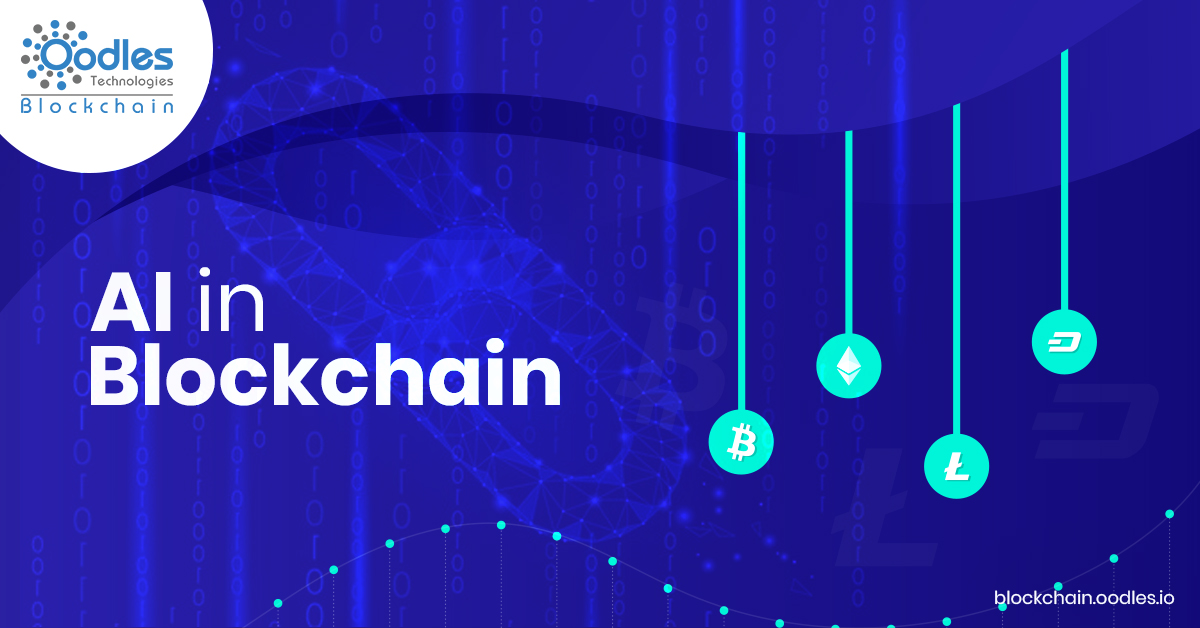-
Arguably, Blockchain and AI (Artificial Intelligence) are the most trending technologies in today's digital world.
Expectedly, the blockchain market is going to expand from a value of $210 million in 2016 to $2.3 billion by 2021, as per a report by Statista. On the other hand, Adobe finds that the jobs requiring AI expertise have spiked 450% since 2013.
The qualities of AI and the cryptographic security of blockchain technology combined are laying the foundation for a better future. But, how can AI in Blockchain benefit each other by working together?
Understanding AI and Blockchain:
In the last few years, Google search results data shows that searches for 'Blockchain' have increased by 250%.
The blockchain is a uniquely secure way of conducting business transactions online, with impenetrable ownership records.
The blockchain is the technology that allows transferring of digitized ownership in a decentralized manner, that's even without requiring excess paperwork and approvals of centralized authorities like the New York Stock Exchange.
While Blockchain is a new player on the scene, Artificial Intelligence has been around almost for decades in various forms. However, in the last few years, AI's potential is being realized by different industries.
AI's work is to replicate human intelligence for swift and efficient intuitive decision-making.
It's a technology that automates processes in manufacturing and makes up for tedious customer-facing troubleshooting scenarios. Thus, helping computers to run actions without any specific programming.
With AI in Blockchain, we can automate predictive analytics, and enable computers to extract large datasets for accurate and informed decisions.
Diligent Encryption with Artificial Intelligence:
Undoubtedly, Blockchain is secure, but some of its applications and further layers (The DAO, Mt Gox, Bitfinex, according to Medium) might not.
The term machine learning has showcased excellent strides in the recent few years. It has helped AI to supply secure application deployment - making all of a blockchain's components safe and secure.
AI is also expeditely becoming capable of creating algorithms with Big Data while being in an encrypted state. Eventually, it means that you get the ability to manage data in a way that there's no need to unencrypt it. Therefore, guaranteeing that your data is safe at all times.
Smart AI-enabled Blockchain Development Services:
Proper execution of blockchain on conventional computers requires an abundance of processing power, due to the inexplicable instructions of how to get them done and their encrypted nature.
However, with the adaptability of AI in Blockchain, the 'Brute Force' approach of managing blockchain is being replaced by a more subtle and delicate manner, which intelligent machines are capable of applying.
Consequently, it will help in running a machine learning-oriented algorithm more efficiently. In the past, this would be a tedious process, but today machine learning is capable of instantly adjusting itself according to the task and providing results.
The richness of calculations that AI can bring into blockchain management is another characteristic that drives attention. Humans are prone to errors and slower in calculations, making Artificial Intelligence more appealing for handling blockchain technology efficiently.
The Boons of Bringing AI in Blockchain:
The advantages of AI and Blockchain synergy aren't only beneficial for the latter. Even blockchain technology can bring various advancements to Artificial Intelligence.
Notably, blockchain can hugely increase the trustworthiness of AI technology. It means that AI will be able to explain its thought process clearly through an impenetrable chain of information blocks.
Not only this but blockchain can also reduce the perils related to AI's handling of sensitive data.
In this scenario, AI-integrated blockchain-based smart contracts are a suitable example.
Smart Contracts: They're used to secure agreements online, whether they're regarding online purchases, employment, or even housing. For example, companies have started using AI integration blockchain-based real estate services to enable investors to take ownership of real estate assets using the application.
The bottom line is that AI will become the driving force behind Smart Contracts, while blockchain is the tool to ensure the security of its contents. However, it's the surface we have scratched. There are more advancements to be expected to come from the integration of these two transforming technologies.

Our Offices
INDIA
Emaar Digital Greens, Sector 61,
Gurugram, Haryana
122011.
Welldone Tech Park,
Sector 48, Sohna road,
Gurugram, Haryana
122018.














